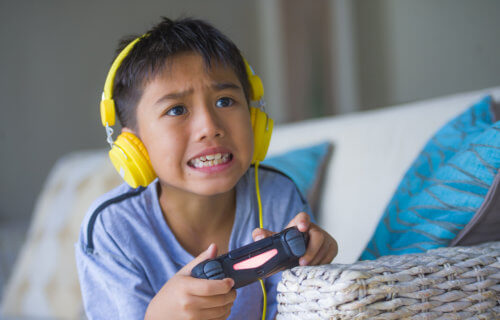LONDON — While parents probably don’t like the idea of their children sitting around all day playing video games, a new study finds it could actually benefit the mental health of young boys. Researchers from University College London say boys who regularly play video games are less likely to suffer from depression when they reach their teenage years.
Unfortunately, not all types of screen time have the same impact on young minds. The same study reveals young girls who regularly use social media are more likely to experience depression as they grow.
Scientists find that the social and problem-solving features of video games can boost the mental health of young boys. Digital entertainment has become increasingly popular over the past decade, with children in many countries spending several hours a day on the internet, on smartphones, or playing video games.
Previous studies have warned of the potential danger in becoming addicted to online media, especially when it comes to children. However, few studies have looked at the different kinds of screen time and compared their effects among the genders, until now.
“Screens allow us to engage in a wide range of activities,” lead author and doctoral student Aaron Kandola says in a university release. “Guidelines and recommendations about screen time should be based on our understanding of how these different activities might influence mental health and whether that influence is meaningful.”
Video games may help less active boys socialize more
The researchers analyzed data from 11,341 teenagers born in the United Kingdom between 2000 and 2002. At 11 years-old, researchers asked participants in the study how much time they spend on social media, playing video games, or surfing the web daily.
Three years later, the group answered questions about depressive symptoms, such as low mood, loss of pleasure, and poor concentration. The team also took into account other factors which may influence mental health. These include socioeconomic status, levels of physical activity, reports of bullying, and previous emotional traumas.
The results reveal girls who use social media on a daily basis from the age of 11 are more likely to experience mental health problems three years later. Boys, on the other hand, did not suffer the same effects of digital media, especially if they are less physically active.
The report finds 11-year-old boys who did not exercise regularly benefited mentally from playing video games on a regular basis. On average, they experienced a 24-percent drop in depressive symptoms in comparison to boys who only play games once a month.
Study authors believe less active boys may get more enjoyment from their games and benefit from the online social interaction more than kids who play outside regularly.
READ MORE: Violent Video Games & Mental Health: 5 Debunked Myths To Ease Your Worries – Study Finds
Social media may isolate young girls
Girls suffered a 13-percent increase in depressive symptoms at age 14 if they had a history of using social media regularly at younger ages. These findings are in line with previous studies which discovered excessive social media use can increase feelings of social isolation.
Unfortunately data on the amount of time teenagers spend looking at their screens per day was not available. Also, study authors note other factors could also explain the link between different screen activities and depression, like social contact or parenting styles.
“The relationship between screen time and mental health is complex, and we still need more research to help understand it,” says senior author Dr. Mats Hallgren from the Karolinska Institutet in Sweden. “Any initiatives to reduce young people’s screen time should be targeted and nuanced.”
Understanding how different types of screen time affects children’s mental health may help parents develop better strategies for monitoring their kids’ digital usage.
“Our research points to possible benefits of screen time,” Dr Hallgren concludes. “However, we should still encourage young people to be physically active and to break up extended periods of sitting with light physical activity.”
The findings appear in the journal Psychological Medicine.
SWNS writer Tom Campbell contributed to this report.
